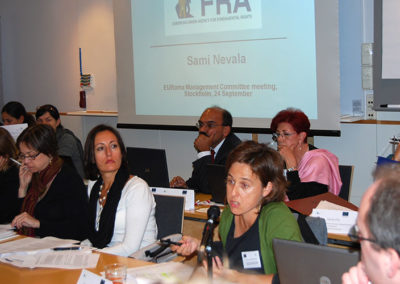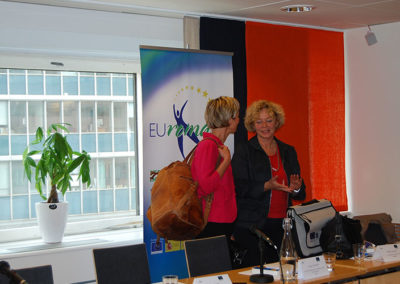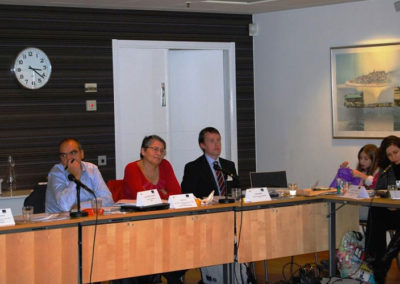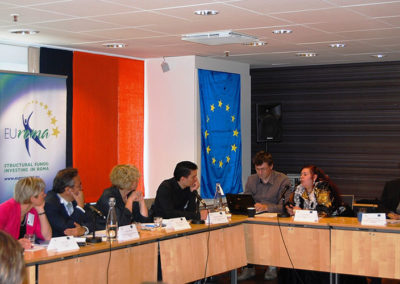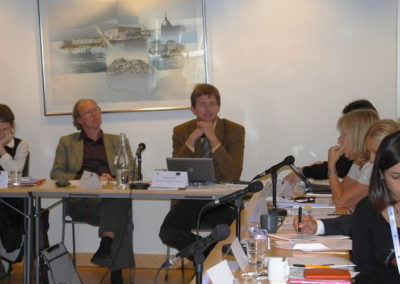Welcoming words were addressed by the Swedish ESF Unit Director General, Ms. Asa Lindh and the Spanish ESF Managing Authority Head, Mr. Carlos Tortuero. Swedish partners –coorganizers and hostess of the meeting- presented an overview and analyzed the situation of the Roma in that country as well as the policies aimed at this population.
This monograph was presented by Ms. Maria Leissner, Chair of the Delegation Sweden Democracy Ambassador. (see document)
Representatives from the civil society: Ms. Tanja Hagart and Mr. Rosario Ali Taikon brought up their viewpoint and their main concerns regarding the social situation of the Roma in Sweden.
As it is becoming usual, updating on Network-related issues and news from Member States and at European level were presented, among others: the European Commission informed on the upcoming Roma Integrated Platform meeting in Brussels (September 28th), High level visits in Hungary (13th to 15th October), as well as the Study on ESF investment on Roma integration which is been carrying out. Hungarian partners gave an overview on the implementation of equality-based funding policy.
One of the main topics discussed were the difficulties in data collection disaggregated by ethnicity in order to improve policies targeting the Roma population. This debate was launched by experts from the European Fundamental Rights Agency (FRA), Sami Nevala; and the United Nations Development Program (UNDP), Jaroslav Kling (see presentation), followed by a lively participation from Member States representatives. Participants from Italy(see presentation) and Spain presented the steps already made in order to overcome some of the difficulties mentioned. (see brief on ethnic data collection)
There was also room for progress in planning future activities of the Network: within the social inclusion group, the first activity of the year 2010 will be the transnational seminar: Improving the capacity of local and regional authorities/administrations for the social inclusion of the Roma, to be held the 25th and 26th of February in Rome. The employment working group will gather together with next Management Committee in Cordoba, to go further on building partnership in employment initiatives. And the education working group will be brought together during the second semester of 2010.
The following debate was based on the document, submitted by the Technical Secretariat of the Network, compiling the monitoring mechanisms of coordination between ESF Managing Authorities and Organisms responsible at national level for Roma targeted policies. This report presented an overview of the existing situation at the participating countries in the Network and the difficulties they encounter within their national structures; it was based on the national questionnaires fulfilled by each country.
Final agreements included the commitment to advance a document reporting on how Structural Funds are being invested on the social inclusion of Roma at national level. This report will be presented at the II Roma Summit under the auspices of the Spanish Presidency of the Union, in Cordoba – Spain, during April 2010. Possible contents, timetable and objectives were introduced by the expert José Manuel Fresno.
RELATED DOCUMENTS
- Agenda
- The European Social Fund in Sweden 2007 – 2013
- Brief on ethnic data collection
- Mechanisms of coordination and follow up
- ESF and Roma Reporting on ESF interventions in the EU
- Decade of Roma Inclusion progress monitoring indicators
- First thoughts on how to make transparent the ESF experiences carried out in Italy in favour of the Roma
- Equal Opportunity Funding Policy Hungary
- Roma Platform

